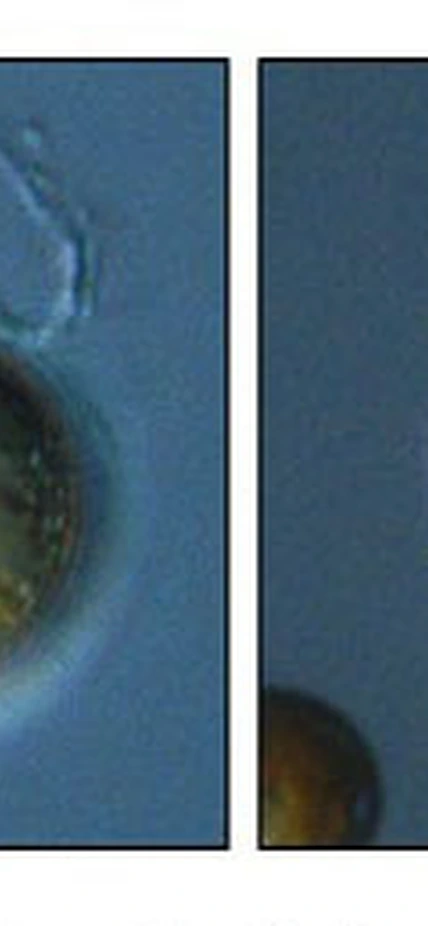Palo Alto, CA—Senior scientist Arthur Grossman of Carnegie’s Department of Plant Biology was part of a team* awarded a three-year grant, with $100,000 for each year, from the International Human Frontier Science Program (HFSP) Organization. The team will use an integrated approach to investigate how light and metabolic signals control photosynthetic processes in algae.
HFSP’s collaborative research grants are given for endeavors that address “complex mechanisms of living organisms.” The program only supports “cutting-edge, risky projects” conducted by globally distributed teams.
Grossman has been studying algae for years. Algae dominate the oceans, produce half of the oxygen we breathe and are important to the Earth’s ecology, human health, and nutrition. They are used as food, for fuel, health care and cosmetics, among other purposes. Despite the pervasiveness of algae there is much that scientists don’t know about them.
Grossman stated, “This new HFSP grant brings together a unique set of investigators to develop a holistic view of photosynthetic control that spans metabolism to epigenetics and mathematical modeling. Interactions among the participants, with their diverse intellectual orientations, will surely reveal many surprises.”
Grossman is a pioneer in studying a broad range of topics about algae. His research has been important for understanding basic mechanisms in photosynthetic organisms as well as their evolution. He has investigated metabolic processes and the acclimation of algae and cyanobacteria (also known as blue-green algae) to changing environmental conditions, the diversity of photosynthetic microbes in hot spring mats, molecular mechanisms associated with corals bleaching (loss of algae and death of corals), the management of light energy by photosynthetic marine microbes, and the identification of novel genes associated with photosynthetic function, among other topics.
Grossman has been a Carnegie staff scientist since 1982 and professor by courtesy at Stanford University. He received his B.S. from Brooklyn College, and his Ph.D. from Indiana University. Grossman received the prestigious 2002 Darbaker Prize for his microalgae work from the Botanical Society of America. In 2009, National Academy of Sciences awarded him the Gilbert Morgan Smith Medal “in recognition of excellence in published research on marine or freshwater algae,” and most recently was awarded the Edmond de Rothschide Chair (2017-2018) to work at the Institute of Physico-Chemical Biology in Paris with Francis-André Wollman and Pierre Joliot (grandson of Pierre and Marie Curie) (http://www.ibpc.fr/fr/chaire-edmond-de-rothschild-892.htm).
*Other team members include Dimitris Petroutsos of the Institute of Biosciences and Biotechnologies in France, Chuan He of the University of Chicago, and Zoran Nikolosky of the Max Planck Institute of Molecular Plant Physiology in Potsdam, Germany.
The International Human Frontier Science Program Organization announced 31 winning teams of the 2018 competition for the Research There were 771 submitted proposals representing more than 50 different countries. Among the winners are 8 Young Investigator Grants and 23 Program Grants.
Top Image Caption: A panel showing different clades of the alga Symbiodinium, the organism that forms an endosymbiotic partnership with the corals and other cnidarians and is needed for coal survival. Modified from Xiang et al., 2013.
